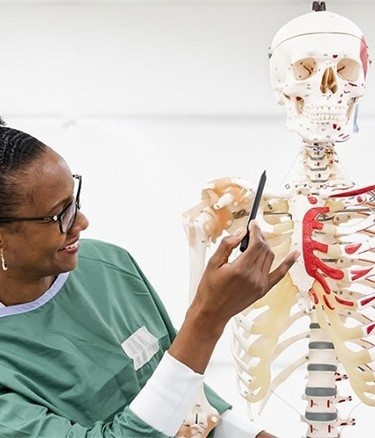1005QBT Genes & Disease
In this course students will explore the biological processes on which the continuity of life is based. These include cellular reproduction, in which the information carried in cells is passed on from cell to cell and organism to organism, and basic genetics which focuses on the storage, replication and transmission of such information and how it influences variation in living organisms. Procedures used to investigate biology and genetics at this level, and the strategies used to take advantage of biological processes clinically and commercially will be investigated. The final part of the course then introduces the theme of evolution, discussing historic milestones and developments, evidence for evolution and how evolutionary processes impact populations. Students will participate in case studies and laboratory based demonstrations/simulations designed to enhance their understanding of the course material, providing a challenging opportunity to develop the practical and intellectual skills required of a scientist and/or health care worker.
Genes and Disease is recommended for students on Health Sciences degree pathways except for 1171 Bachelor of Exercise Science degree pathway.
1011GRC Introduction to Psychology 1
This course provides a foundation for understanding the cognitive and biological bases of human behaviour, including the role of the brain and neural processes in behaviour, perception (how the senses allow you to see, hear, taste, touch and smell the world around you), conditioning and learning (how humans and other animals learn about their environment), cognition and memory (how people think, solve problems and remember). Drawing on various research traditions in experimental psychology, this course demonstrates how cognitive and biological psychology contributes to our knowledge of human well-being and performance. Students apply this knowledge through a series of practical in-class exercises.
Students on a pathway to the Bachelor of Exercise Science to study Introductory Cognitive and Biological Psychology.
1002GRC Introduction to Psychology 2
This course provides an introductory-level overview of several fields within psychology. It focuses on developmental and social processes and their relationships to individual differences in behaviour. It also provides a broad introduction to the areas of developmental, personality, abnormal and social psychology.


